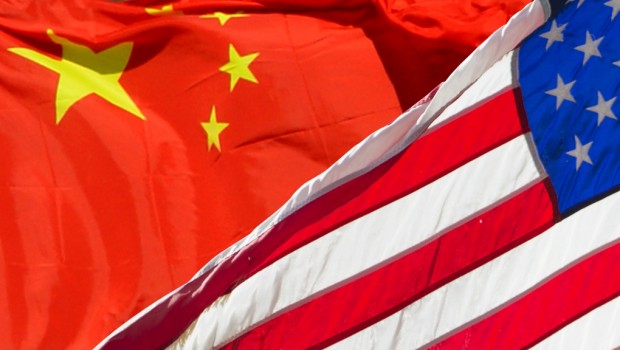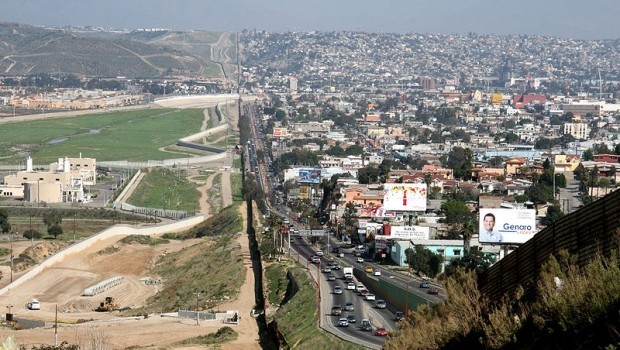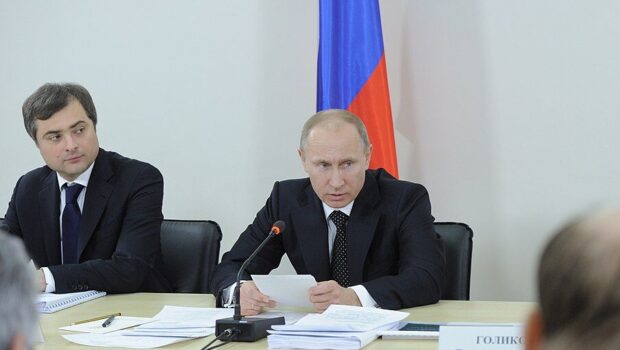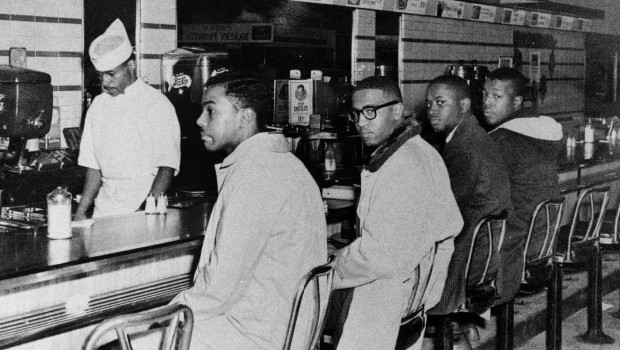China Rising
El ascenso de China
Jon Huntsman
Goldman Sachs predicts that the United States will be replaced as the largest economy by 2027, whereas the World Bank projects said transition will take place in 2020, positioning China as the top economy of the 21st century. Despite the fact that the annual income per capita of the citizens of this country is 3,600 dollars, far below the 37,800 average in Japan –or 42,240 for U.S. citizens– the truth is that, as a whole, China contributes one-third of world growth despite recurring crises since 2008. This positioning as an economic and, therefore, cultural and political protagonist demands a rethinking of U.S. relations with regards to an economy alien to Western tradition, not to mention the first non-democratic leader in modern history. The following conversation was recently hosted by the Institute of Politics and Harvard’s Kennedy School of Government. The former U.S. Ambassador to China, Jon M. Huntsman, and the former Australian Prime Minister, Kevin Rudd, were participants in a round-table discussion regarding “China Rising.” We offer excerpts from said conversation with the authorization of the IOP.
* * *
A Cooperative Relationship
Jon Huntsman: The U.S.-China relationship is now into forty-plus years. It has never been smooth sailing, we have to recognize it for what it is and world order is changing. China is a rising power; it is seen through the prism of fear by a lot of Americans as opposed to an opportunity factor. This is the most important relationship for the 21st Century. It is cooperative. We are pretty much married. Divorce is not an option, so we just have to make it work. The hard part is to define the reality of where we are in history and the pathway going forward that is going to maintain prosperity and security in the world. That is going to take work on both sides, particularly with the emerging generation.
Conflicts Between China and the U.S.
Kevin Rudd: What I regard to be the central question for the first half of the 21st Century is: Can we, in our collective wisdom, manage the rise of China without seeing conflict with the United States? Preserving a peace and building a common prosperity, I believe we can. If China emerges as the world’s largest economy, which I regard as probable, then the historical significance of this cannot be underestimated. It would be the first time since George III was on the throne that you have a non-Western, non-English speaking, non-democracy as the world’s largest economy. This is not a small thing. Therefore, which would be the rules of the global and regional order as China becomes more central to the global power equation? At present, the dialing of our strategic mindsets is a pretty decisively in a negative trajectory, a negative direction. If we look closely at the official literature emerging from the political class in both capitals, there are real differences of strategic perspective and strategic interest.
Therefore, the new mindset is: how do we consciously build strategic trust between China and the United States through a program of regular summitry between the two countries’ leaders which is task oriented, which is focused on areas of real potential cooperation? Could we build the basis for long-term strategic trust? I think that is possible, and would require leadership in both capitals.
Strategic Areas of Mutual Effort
Jon Huntsman: We have to recognize that the most profound change in the U.S.-China relationship over the last forty years is the fact that we have become global. How can we re-calibrate our dialogues in our diplomatic interaction to accommodate the fact that there is not a whole lot that plays out in this world–whether it is debt in Europe or the island issues in the East China Sea or the South China Sea or health issues in Sub-Saharan Africa–that do not somehow play through the U.S. relationship?
The challenge today is, how you recognize it as a global relationship, and begin to redefine our messaging and our agenda? Our modes of interaction are dated and, I think, highly effective. For example, the strategic economic dialog which seeks to corral a lot of our bilateral issues. The challenge for me as Ambassador was how to manage a hundred different working groups. Everybody wants to have work in the US government; if we do not have a working group, we lack credibility. Therefore, reorienting this relationship to one that is less top heavy, more nimble, more focused on the regular interaction of the heads of state is needed; a relationship where the interaction is pure, sincere, and in some cases, spontaneous. Trust is built, friendships are developed and maintained and it is not on the margins of global concerns. The world would expect that the most prominent issues would be nuclearization in Iran, North Korea, economic issues, the South China Sea, etc. However, I think beyond those issues that typically make the top three or four billings on the agenda, we are missing some huge opportunities in areas of science, for example. Both countries have some of the finest research infrastructure some of the best minds, yet we have not figured out a way of really harnessing this power into doing something with it for the well being of the world. We are not even scratching the surface in terms of what this relationship is capable of.
Kevin Rudd: It is the General Secretary to the Chinese Communist Party, president of the country, who makes those decisions: therefore, regular summitry, by which the two leaders spend serious time with each other. Initially with relatively open agendas, in order to build a level of personal trust. Then, becoming more focused on a working agenda, whether it is the WTO, whether it is climate change or non-proliferation. Bilaterally, the big one is cyber security, or the expansion of free trade in Asia and the Pacific under the Trans-Pacific partnership. But the chemistry of this tool has to be through summits.
Areas of Cooperation and Trust
Kevin Rudd: Will China in the future continue to adhere by the global rules-placed order which we have had characterizing and underpinning international systems since 1945? Big question. If we ask the Chinese this in Beijing and speak to their think-tanks, they will say, “We do not like the rules of the current rules-placed order, but we do not have an alternative order to recommend.” The key question as I see it is, how do you get China and the United States cooperating directly on those elements of the current rules-based order which aren’t working?
Jon Huntsman: Let me just build on that for a moment. Two things will be critical to making the progress that I think is possible between the United States and China. First, we need to get back to thinking bigger in terms of the ultimate goal. What is the promised land? There is no grand design, there is no strategy, so consequently, we are spinning our wheels. We have always done better as a relationship in pursuit of something aspirational that conjoins or our shared interests, whether it was Cold War politics in fear of the Soviet Union or in the ’90s, more immediately, the WTO recession for China that kept us busily engaged in something that they wanted and something that we thought was good as well.
We are missing that aspirational piece and whether it is a major trade initiative or a scientific undertaking or an environmental undertaking, it has to be thought through and put in place. Without that, we fall victim to the headlines which are never positive, and it becomes a “tit-for-tat,” and that is kind of the way the relationship is running today. Secretary of State John Kerry hasn’t gone to Asia yet this month. He’s gone to Europe, the Middle East, and he is going back to the Middle East. Shouldn’t he be going to China?
Kevin Rudd: The United States is a global superpower. There is a thing called the Middle East and it’s not a happy place a lot of the time. As a China guy, I kind of get that, and Europe still exists, so I don’t think that’s where the criticism lies. I may be proven to be wrong. As I see this juncture in history, we are ultimately not simply passive victims of undetermined forces in history inevitably leading us in the direction of some conflict. You make active choices to shape your future. I think there is enough there on the table at the moment, in terms of possibilities, for these two leaders to meet in what history has given us as a pretty unique historical window.
Jon Huntsman: We have had examples of that in the past, where things have actually worked at a more strategic level earlier in the relationship. When there is disfunctionality in the way in which we interact, I think we are taken advantage of. We are diminished and disadvantaged at the negotiating table because we do not have our act together. I do think for purposes of a longer-term, broader vision economically, and for greater certainty on the security side, they would welcome that kind of dialogue. However, it would have to be structured properly, based on trust and confidentiality.
North Korea
Jon Huntsman: What if things get out of control on the Korean Peninsula? This is not a remote possibility if there is a conventional provocation across the parallel from North Korea. In South Korea, we are looking at a high probability of a conventional response; we are looking at the possibility of escalation. Therefore, we need to be looking at what happens next on the telephone between the President of the United States and the President of the People’s Republic of China. We need a strategic balance of trust to draw upon in those sorts of circumstances, as missiles are dialing down the level of strategic tension that currently characterize the East China Sea of Japan and the South China Sea with Southeast Asia.
The U.S. and China Cyber War
Kevin Rudd: Let us use a slightly more neutral term: “cyber conflict” is underway. You have seen all the commentary from American firms in recent times. This is, I believe, potentially a significantly disabling element in the China-U.S. relationship, and China’s relationship with a number of other countries around the world as well. The real question is, what do you do about it?
Jon Huntsman: I do not know how you define war in the context of “cyber” but I would have to say that there is a serious skirmish going on, and where that goes will really be up to both sides. They need to define the rules of the road and the red lines around cyber intrusion. There is clearly an espionage side, and then there is a commercial side. The governments are going to engage in a certain level of poking back and forth around national security targets. It is not assumed that private citizens, civil society companies are going to be the targets of massive theft, and that’s where we are today. It is a widespread problem, and finding solutions is the hard part. When you sit down and try to have a conversation with the Chinese counterparts on this, you get “we are not responsible,” so it’s good for China in the sense that it’s asymmetric, there’s plausible deniability, what’s not to like about the whole cyber side? But then it is also, “well, here are the targets that you hit yesterday.” So where do we take the conversation?
China’s Natural Alliance with North Korea
Kevin Rudd: Let us try and look at the world through Chinese eyes. I think that is a useful discipline. Firstly, China is directly concerned about what happens if the North Koreans do something across the parallel, such as a bomb or the sinking of a South Korean warship. What will South Korea do in response to any such North Korean provocation this time? China is right to be concerned about that, because the prospects for escalation are significant, and also, the Chinese are intensely literate about the dynamics of South Korean politics. They understand that newly elected President Park may have limited room to maneuver on this question.
Secondly, through this appalling series of declarative statements which become, frankly, like a rerun of a bad 1930s movie–and have nothing to do with the language of normal 21st Century diplomacy by any nation-state anywhere in the world today–is that other states in the region, like Japan and other U.S. allies, are working very actively on ballistic missile cooperation against the contingency they actually face: an incoming attack at some point in the future.
There is a third factor weighing upon the Chinese consciousness as well, and that is, with friends like North Korea, who need enemies in the world of diplomacy? North Korea does enormous damage to China’s global diplomatic brand, and if we are going to line up friends like North Korea, Bashar al Assad, as well as from time to time various people who have run Sudan in the midst of the Darfur actions by the government in Khartoum, then China is suffering reputational damage around the world.
These three factors are now known in the Chinese leadership. For the first time, there is a big public and certainly an intense private debate about change or the possibility of change in China’s North Korea policy. I think it is one of the reasons why this sort of summit level meetings we mentioned from the very beginning have moved from “important” to “urgent,” in order to create a level of strategic trust with the United States.
Traducción de José Alfonso Toledano
Según las previsiones de Goldman Sachs, el relevo de Estados Unidos como la mayor economía ocurrirá en 2027. Por su parte, el Banco Mundial proyecta que tal cambio sucederá en 2020, colocando a China como la economía rectora del siglo XXI. No obstante que el ingreso anual per cápita de los ciudadanos de este país es de 3.600 dólares, muy por debajo de los 37.800 en Japón o los 42.240 del ciudadano norteamericano, lo cierto es que, en conjunto, China aporta un tercio del crecimiento mundial pese a las crisis reincidentes desde 2008. Esta posición como protagonista económico y, por lo mismo, cultural y político, obliga a replantear las relaciones de EE.UU. respecto de una economía ajena a la tradición occidental, la primera potencia no democrática a la cabeza de la historia moderna. En la siguiente conversación, recientemente auspiciada por el Institute of Politics at Harvard’s Kennedy School of Government, el ex embajador de EE.UU. en China, Jon M. Huntsman, y el ex primer ministro australiano Kevin Rudd, participan en un debate bajo el tema “El ascenso de China”. Con la autorización del IOP, ofrecemos algunos fragmentos de dicha conversación.
* * *
Una relación cooperativa
Jon Huntsman: La relación entre Estados Unidos y China lleva ya más de cuarenta años y nunca ha sido fácil. Tenemos que reconocer esto en el contexto de un orden mundial cambiante. China es una potencia en crecimiento y muchos experimentan temor en lugar de advertir sus oportunidades. Se trata de nuestra relación más importante en el siglo XXI y, por lo mismo, debe ser cooperativa. Por decirlo así, estamos casi enlazados y el divorcio no es una opción. Lo difícil es definir dónde nos encontramos históricamente y el camino que podrá garantizar la prosperidad y seguridad en el mundo. Esto costará trabajo para ambos partes, especialmente a las generaciones que vienen.
Conflictos entre China y Estados Unidos
Kevin Rudd: La interrogante que me parece fundamental en esta primera mitad del siglo XXI es si podemos, con nuestra sabiduría colectiva, manejar el ascenso de China sin que hayan conflictos con Estados Unidos, preservando la paz y construyendo una prosperidad común. Si China emerge como la mayor economía del mundo, entonces su significado histórico no puede ser subestimado. Será la primera vez desde que Jorge lll estaba en el trono que se tiene a una potencia no occidental, que no habla inglés y no es demócrata, como la economía más grande del mundo. No es poca cosa. En consecuencia, ¿cuáles serán las reglas del orden global y regional a medida que China se vuelva determinante en la ecuación del poder mundial? Actualmente, el tono de nuestra mentalidad estratégica es un poco negativo. Si observamos con detenimiento la literatura oficial que surge de las clases políticas de ambos países, hay grandes diferencias de perspectiva e interés estratégicos. Por lo mismo, la nueva mentalidad debe considerar los siguientes aspectos: ¿cómo construir una confianza estratégica mediante una agenda de cumbres entre los líderes de ambos países, enfocados sobre áreas para una cooperación potencial?¿Podemos cimentar una cooperación a largo plazo? Todo es posible pero requiere del liderazgo de ambos lados.
Áreas estratégicas de esfuerzo mutuo
Jon Huntsman: El cambio más profundo en la relación de Estados Unidos y China durante los últimos cuarenta años es el hecho de que nos hemos vuelto globales. ¿Cómo recalibrar el diálogo en nuestras relaciones diplomáticas para considerar el hecho de que no todo el mundo está representado aquí –la deuda en Europa, los conflictos en las islas del mar oriental o de China meridional, los problemas de salud en el sur del Sahara– y que, de alguna manera, hay mucho que no se juega en la relación con EE.UU.?
Sin embargo, el desafío hoy es reconocer las relaciones globales y, a partir de ahí, redefinir mensajes y agendas. Nuestros modos de interacción tienen fechas concretas y, creo yo, han sido efectivos. Por ejemplo, el diálogo económico que busca acotar muchos de los problemas bilaterales. El reto para mí como embajador fue gestionar con un centenar de grupos de trabajo diferentes. Todos quieren participar en el gobierno de Estados Unidos –y si no tenemos grupos de trabajado, nos falta credibilidad. Por lo mismo, es necesario reorientar esta gestión para volverla más ágil, concentrada más bien en la interacción regular de los jefes de Estado. La confianza está construida, una amistad que no se da al margen de los problemas globales. El mundo esperaría que los cuestiones más destacadas sean la nuclearización de Irán y Corea del Norte, las actuales crisis económicas, los conflictos del mar oriental de China, etc. Sin embargo, pienso que más allá de estos que suelen ser el top three or four en nuestra agenda, nos estamos perdiendo de una gran oportunidad en áreas como la ciencia, por ejemplo. Ambos países tienen algunas de las mejores infraestructuras de investigación y algunas de las mejores mentes; aún así, ni siquiera hemos arañado la superficie en términos de lo que esta relación es capaz de alcanzar.
Kevin Rudd: Es el Secretario General del Partido Comunista de China y presidente de ese país quien toma las decisiones: por lo tanto, es en las cumbres regulares donde los dos mandatarios, el chino y el norteamericano, pasan mucho tiempo con otros líderes. Inicialmente con agendas relativamente abiertas, con el fin de construir un nivel de confianza personal. Y así, centrados en una agenda de trabajo precisa, ya sea en la OMC, el cambio climático o la no proliferación de armas. Los temas más importantes bilateralmente son la de seguridad informática o la expansión del libre comercio en Asia y el Pacífico en el marco de la asociación Trans-Pacífico. La química debe darse en estas cumbres.
Áreas de cooperación y confianza
Kevin Rudd: ¿China continuará adhiriéndose al orden mundial con reglas que han caracterizado y sustentando los sistemas internacionales desde 1945? Gran interrogante. Si cuestionamos a los chinos de Beijing y hablamos con sus think-tanks nos dirán: “No nos gustan las reglas del orden actual, pero no tenemos una propuesta alternativa que recomendar”. Y como yo lo veo, la cuestión decisiva es lograr que China y Estados Unidos se involucren directamente con base en las actuales reglas, las cuales –insisto– no están funcionando.
Jon Huntsman: Hay dos aspectos fundamentales para lograr cierto consenso entre Estados Unidos y China. La primera es que debemos volver a pensar en grande, en términos de una meta final. ¿Cuál esa tierra prometida? Por el momento no existe ningún gran proyecto y no hay estrategias, así que seguimos en las mismas. Siempre nos ha ido mejor en esta relación si las aspiraciones conjugan nuestros intereses compartidos, ya sea la política durante la Guerra Fría –bajo el temor de la Unión Soviética; o en los más cercanos 90, con la recesión de la OMC y la respectiva posición de China.
Estamos perdiendo este elemento de inspiración. Tanto si se trata de una iniciativa comercial importante, una meta científica o una empresa del medio ambiente, tendremos que repensarlo antes de ponerlo en marcha. Sin eso, terminaremos siendo víctimas de titulares que nunca son positivos y se convierten en una suerte de «ojo por ojo». Esta es la manera en que la relación se está desarrollando en la actualidad. El secretario de Estado John Kerry aún no ha ido a Asia, pero ha viajado a Europa, el Medio Oriente e, incluso, ha regresado al Medio Oriente otra vez. ¿No debería estar volando a China?
Kevin Rudd: Estados Unidos es una superpotencia global. Hay una cosa llamada Medio Oriente que no es un lugar feliz la mayor parte del tiempo. Siendo yo un hombre chino, de cierto modo lo entiendo; y Europa sigue existiendo…, así que no creo que sea ahí donde deben recaer las críticas. Puedo equivocarme aunque, según entiendo esta coyuntura, en última instancia no somos unas simples víctimas pasivas de fuerzas indeterminadas que, inevitablemente, nos conducen en la dirección de algún conflicto. Uno toma decisiones activas para moldear su propio futuro. Por el momento y en términos de posibilidades, creo que para estos dos líderes ya hay suficientes cosas en la mesa.
Jon Huntsman: Hemos tenido ejemplos de esto en el pasado, donde las relaciones han funcionado a un nivel más estratégico. Cuando hay disfuncionalidad, desaprovechamos nuestros vínculos; nos vemos disminuidos y contrariados en la mesa de negociaciones si nuestros actos no marchan al parejo. Para efectos a largo plazo, de una visión económicamente más amplia y mayor certeza en aspectos de seguridad, ambas partes darían la bienvenida a este tipo de diálogo. De cualquier modo, el encuentro deberá estar estructurado apropiadamente, basado en la confianza y la confidencialidad.
Corea del Norte
Jon Huntsman: ¿Qué pasaría si las cosas se salieran de control en la península de Corea? Ésta no es una realidad remota si hay una provocación por parte de Corea del Norte. La probabilidad de una respuesta es alta y, en este sentido, hay la posibilidad de una escalada. Debemos estar alertas sobre lo que pasa al teléfono entre el presidente de los Estados Unidos y el de la República Popular de China. Necesitamos un equilibrio estratégico de fondo para poder trabajar en este tipo de circunstancias: los misiles delatan el nivel de tensión que hoy caracteriza al Mar Oriental entre China y Japón y el Mar del Sur entre China y el sudeste de Asia.
La guerra cibernética entre EE.UU. y China
Kevin Rudd: Permítanme emplear el término “conflicto cibernético”, un poco más neutral que guerra cibernética. Ustedes han visto todos los comentarios de las compañías norteamericanas en los últimos años. Creo que esto constituye, de manera significativa, un elemento potencialmente limitante en la relación China-Estados Unidos y, a su vez, de China con otros países del mundo. ¿Qué haremos al respecto?
Jon Huntsman: No se cómo se defina una guerra en el contexto “cibernético” pero tendría que decir que está sucediendo un enfrentamiento serio. Y lo que salga de este conflicto afectará a ambos protagonistas. Es necesario definir bien las reglas, con líneas rojas en el camino para prevenir la intrusión cibernética. Evidentemente, hay un margen de espionaje y, en este sentido, más de un aspecto comercial está en juego. Los gobiernos participarán a cierto nivel (impulsando o resistiéndose) en torno a objetivos de seguridad nacional. Esto no implica que ciudadanos particulares, las empresas de la sociedad civil, vayan a ser objeto de robo masivo. Se trata de un problema muy complejo y buscar las soluciones es la parte difícil. Cuando uno intenta dialogar con la contraparte china sólo consigue por respuesta: “Nosotros no somos responsables”. Y eso es bueno para ellos en un sentido asimétrico ya que existe una plausible deniability [retención de información de alto nivel]. ¿Qué más se puede esperar en el aspecto cibernético? Aunque el diálogo también podría ser: “Bueno, aquí están los objetivos alcanzados ayer”. ¿Hacia dónde orientamos la conversación ahora?
La natural alianza de China con Corea del Norte
Kevin Rudd: Intentemos mirar el mundo con ojos chinos. Creo que es un ejercicio útil. Antes que nada, China está preocupada por lo que pueda pasar si los norcoreanos hacen algo en sus fronteras, como estallar una bomba o hundiendo un buque de guerra surcoreano. ¿Qué hará Corea del Sur en respuesta a cualquier provocación de Corea del Norte? China hace bien al preocuparse debido a que la posibilidad de escalada de las hostilidades son significativas; asimismo, los chinos están muy informados sobre la dinámica de la política de Corea del Sur. Entienden que el presidente Park, recién electo, podría tener un margen limitado de maniobras en este asunto.
En segundo lugar, mediante esta espantosa serie de declaraciones –que, francamente, parecen tomadas de una mala película de los años treinta y nada tiene que ver con el lenguaje diplomático del siglo XXI en cualquier Estado-nación– otros países de la región, como Japón y demás aliados de Estados Unidos, trabajan activamente en una alianza sobre misiles en contra de la contingencia que en realidad se enfrentan: el posible ataque en algún momento futuro.
Un tercer factor determinante en la conciencia china es que, con amigos como Corea del Norte, ¿quién necesitan enemigos en el mundo de la diplomacia? Corea del Norte hace un daño enorme a la presencia diplomática de China. En efecto, si vamos a reunir amigos como Corea del Norte, Bashas al Assad y, de vez en cuando, a aquellos que en el conflicto de Darfur han operado de lado del gobierno de Jartum, China puede estar afectando su reputación global.
Los tres factores son del conocimiento de los líderes chinos. Por primera vez existe una gran público y un intenso debate acerca de la posibilidad de un cambio en la política de China sobre Corea del Norte. Pienso que esta es una de las razones por las que las reuniones a nivel de cumbres que mencionamos al inicio han cambiado de “importantes” a “urgentes” para, así, dar paso a un nivel de confianza estratégica.










